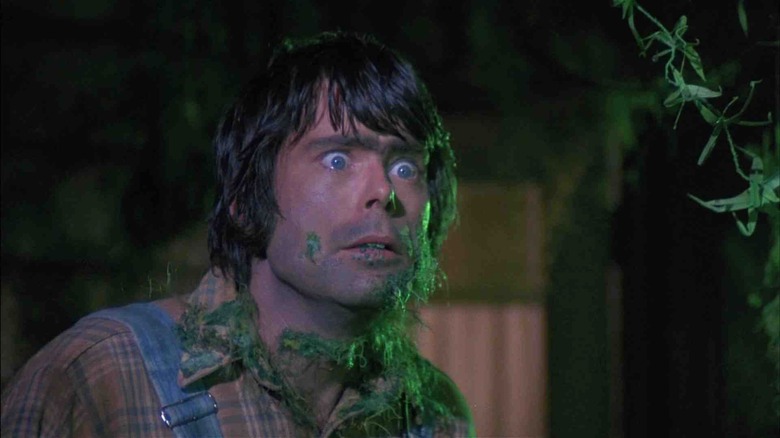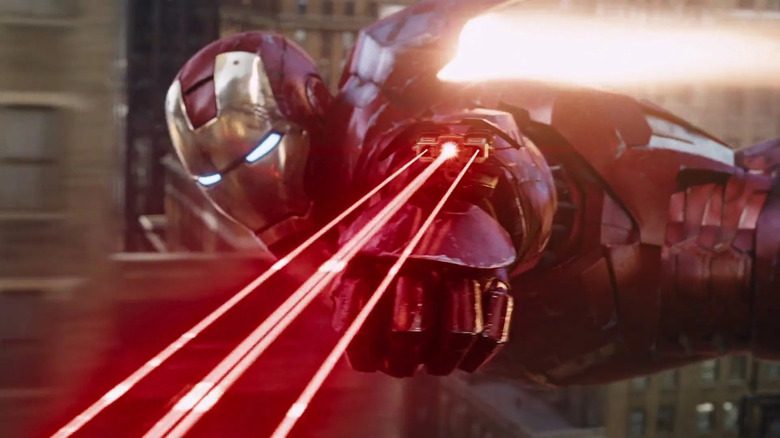Stephen King Has A Major Problem With Superhero Movies (And He's Not Wrong)
James Bond kills more people per movie than Jason Voorhees. In his 24 films to date, James Bond has been directly responsible for the deaths of about 597 people, averaging out to 24.875 kills per movie. Jason, meanwhile, has only directly murdered about 195 people across his 12 films, averaging out to only 16.25 murders per movie. And yet James Bond is seen as a suave, righteous hero, while Jason is depicted as a bloodthirsty monster. Never mind that the odds are greater that you'll be shot to death by a British spy than hacked in the neck by a masked super-zombie.
In action movies, violence is often seen as something just and correct. A "hero" character typically has the moral license to murder and bully whoever they like, provided their chosen victims are villains or bad guys. Superman may not want to kill dictators in his latest movie — he even goes out of his way to save a squirrel — but Hawkgirl has no such compunctions, killing a dictator with glee. Murder can be heroic.
Meanwhile, in horror movies, murder is always seen as horrifying. Witnessing death up close will involve viscera, cracking bones, and blood. Horror movies know that death is scary, a notion that undergirds the entire genre. Sure, the audience may giggle when bubble-headed teens get decapitated, but both the filmmakers and the audiences know that the actual murder is bad. We should be scared by death. And if we take visceral enjoyment in horror, gorehounds know that it is a subversive and/or naughty thrill. Weirdly, horror movies are more morally upstanding than action movies.
Stephen King agrees with this viewpoint. In a recent interview with The Time UK, the famed horror author noted that superhero movies regularly lay waste to big cities in fiery conflagrations, and yet no one ever bleeds or suffers. Superheroes want to depict all the violence, but strain out all the suffering to make the violence more palatable.
Stephen King feels that superhero movies are 'pornographic'
And King has a point. Superhero movies turn destruction, murder, and violence into something fun that the whole family can enjoy. Audiences accept the murders committed by superheroes because, well, they're heroes. We're given a fantastical parallel universe of moral absolutes, where good guys are good, and they are morally permitted to kill bad guys. King objects to this, arguing that if you want violence in your movie, you should show it in all its horrifying glory. Showing bloodless mass destruction for pop entertainment, he feels, is kind of gross:
"If you look at these superhero movies, you'll see ... some supervillain who's destroying whole city blocks but you never see any blood. [...] And man, that's wrong. It's almost, like, pornographic ... I said, if you're not going to show it, don't bother. And so [the makers of 'The Long Walk'] made a pretty brutal movie."
"The Long Walk," based on a Stephen King short story, is about a contest wherein the contestants have to walk until they drop dead. If they slow down too much, they are killed. If they break an ankle, they have to keep going. Only the last man standing wins, and he gets a gigantic cash prize. Neither the original novel nor the movie shy away from the terror of the premise.
Of course, action movies stack the deck, don't they? They are permitted to show heroes committing murder because their victims are orchestrated to be irredeemable villains. It's okay to kill Thanos because Thanos would — and did — kill half the universe when he had the chance. It's okay to celebrate the destruction of cities because it's in service of killing a Bad Guy who would do even more destruction, if given the chance.
But King would prefer violence be done on a more intimate, face-to-face basis. And he would like to see the blood. Otherwise, the movie is being irresponsible.

